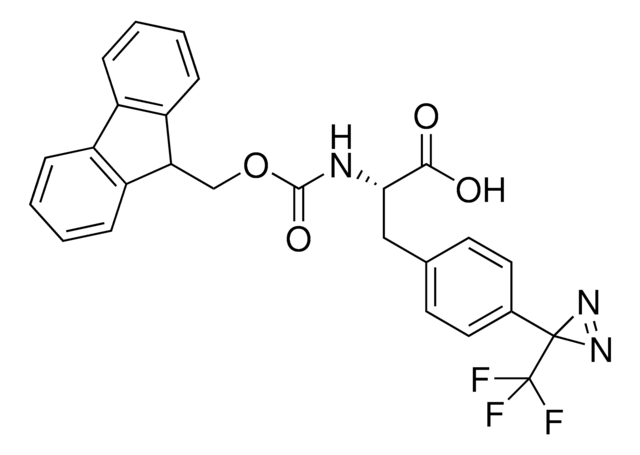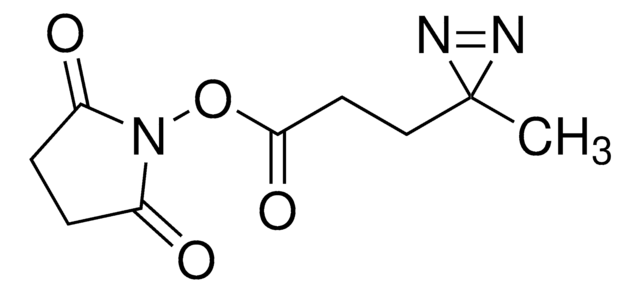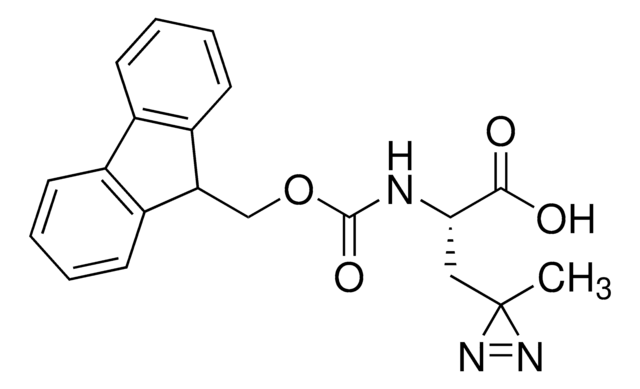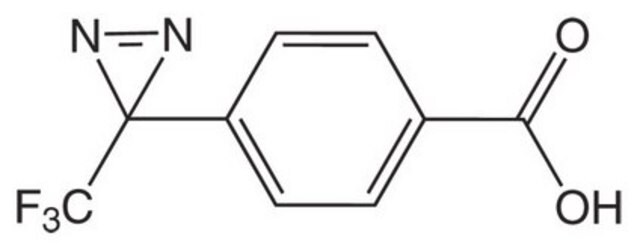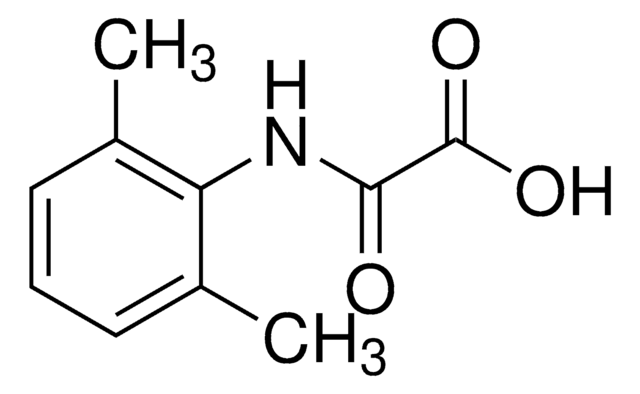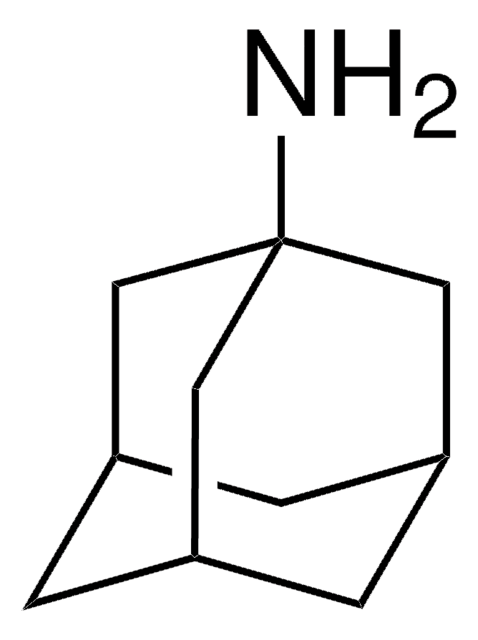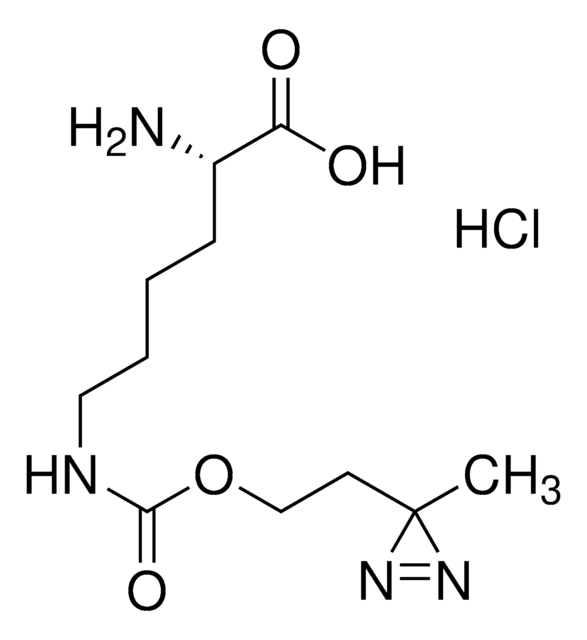907286
H-L-Photo-Proline hydrochloride
≥95%, for peptide synthesis
Synonym(e):
(S)-1,2,5-Triazaspiro[2.4]hept-1-ene-6-carboxylic acid, Diazirine amino acid, Photo-Pro, Photo-crosslinking amino acid, Photoprobe building block
About This Item
Empfohlene Produkte
product name
H-L-Photo-Proline hydrochloride, ≥95%
Assay
≥95%
Form
powder
Eignung der Reaktion
reaction type: solution phase peptide synthesis
Anwendung(en)
peptide synthesis
Lagertemp.
−20°C
Anwendung
Product can be used with our line of photoreactors: Including Penn PhD (Z744035) & SynLED 2.0 (Z744080)
Ähnliches Produkt
Lagerklassenschlüssel
11 - Combustible Solids
WGK
WGK 3
Flammpunkt (°F)
Not applicable
Flammpunkt (°C)
Not applicable
Hier finden Sie alle aktuellen Versionen:
Analysenzertifikate (COA)
Leider sind derzeit keine COAs für dieses Produkt online verfügbar.
Wenn Sie Hilfe benötigen, wenden Sie sich bitte an Kundensupport
Besitzen Sie dieses Produkt bereits?
In der Dokumentenbibliothek finden Sie die Dokumentation zu den Produkten, die Sie kürzlich erworben haben.
Unser Team von Wissenschaftlern verfügt über Erfahrung in allen Forschungsbereichen einschließlich Life Science, Materialwissenschaften, chemischer Synthese, Chromatographie, Analytik und vielen mehr..
Setzen Sie sich mit dem technischen Dienst in Verbindung.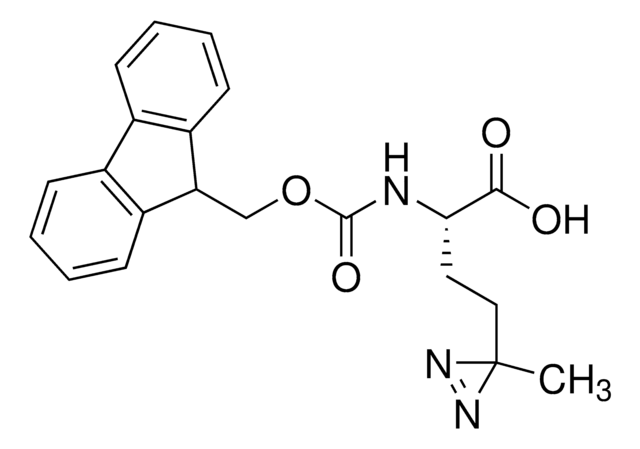
![1,8-Diazabicyclo[5.4.0]undec-7-en (1,5-5) 98%](/deepweb/assets/sigmaaldrich/product/structures/120/564/5b373e23-1624-489c-8efb-692de0f96ffb/640/5b373e23-1624-489c-8efb-692de0f96ffb.png)
